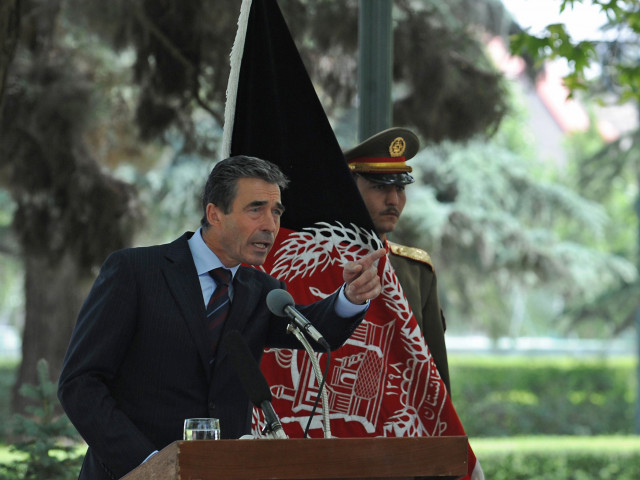Pakistan and the Chicago Summit
Pakistan must attend the Chicago Summit and be persuasive with its position, which is still unclear to everyone.

The Chicago Summit on Afghanistan is scheduled for May 21-22, and Pakistan’s DCC is going to meet on May 15 after which the cabinet will meet on May 16 and announce what Pakistan has decided to do. That is cutting it very close. This kind of brinkmanship has allowed all kinds of speculations to spread, influencing official postures in the region and among the Nato states keen to make their exit from Afghanistan not look like defeat. In Pakistan, regretfully it is emotion that is directing the state, in addition to fear provoked by the aggressive stance adopted by Pakistan’s nonstate actors that it is now notorious for not controlling the conduct of its foreign policy.
Pakistan has delayed its concurrence to the opening of the Nato supply route, perhaps, with the intent of not appearing to give in too soon. Its expression of outrage over what happened at Salala in November 2011 has to be demonstrated as a genuine “national sentiment”, which must be respected. It is moot whether this strategy of expression of outrage was advisable in the first place. Our expressions of anger over the way the endgame in Afghanistan is unfolding have kept us out of summits where Pakistan’s presence was required even if this presence was used merely to state its negative position. Not going to the Bonn Summit deprived Pakistan of an opportunity to enlist support for its strategy, however, isolationist it may have been in the first place. In the final analysis, some observers inside Pakistan think of it as useless brinkmanship which has allowed the states concerned to adopt hostile postures.
If the intent is to express “national sentiment” it must be seen together with other factors relating to Pakistan’s capacity to withstand pressure in foreign policy and its leverage to put pressure on other states to compel them to accept its line of thinking. Pakistan has never belonged to the category of states that can withstand external pressures — mainly because of its economy. It adopts a defiant posture to allay public passions at home for a brief moment and then gives in — only to reap a blowback of popular condemnation, as happened in the case of the standoff over the CIA contractor Raymond Davis. The delay over the implementation of the parliamentary guidelines on the issue of Nato routes has been ill-advised and the position taken on the matter of official apology by the Obama Administration on the Salala incident, too, has been unrealistic, given the well-known fact that President Barack Obama is into a tough campaign for the next US presidential election and cannot be seen by his voters as being humiliated by Pakistan.
The US-Nato strategy is to persuade Pakistan to come on board. There is the stick of trade sanctions that the US can apply together with ‘very willing’ Nato states who want their troops out of Afghanistan in short order. British premier David Cameron is offering the carrot so far, but if the EU and the US get together on sanctions, Pakistan’s exports will be hit hard, which will ultimately be more hurtful to national pride with the economy winding down more rapidly than ever before. Pakistan must attend the Chicago Summit and be persuasive with its position, which is still unclear to Pakistanis and the world alike.
Published in The Express Tribune, May 13th, 2012.














COMMENTS
Comments are moderated and generally will be posted if they are on-topic and not abusive.
For more information, please see our Comments FAQ